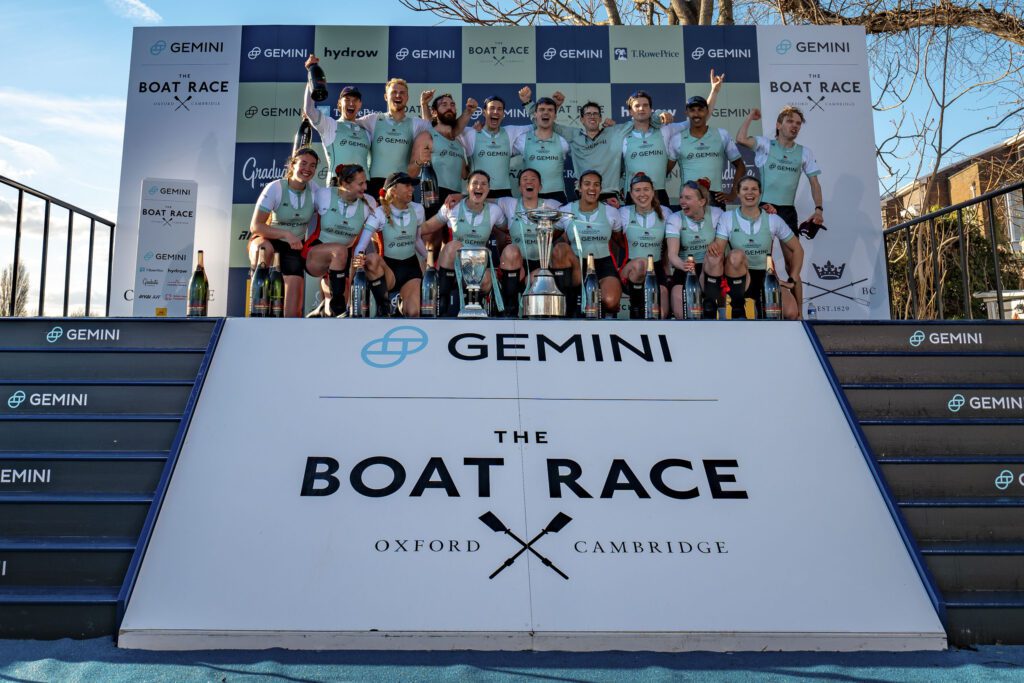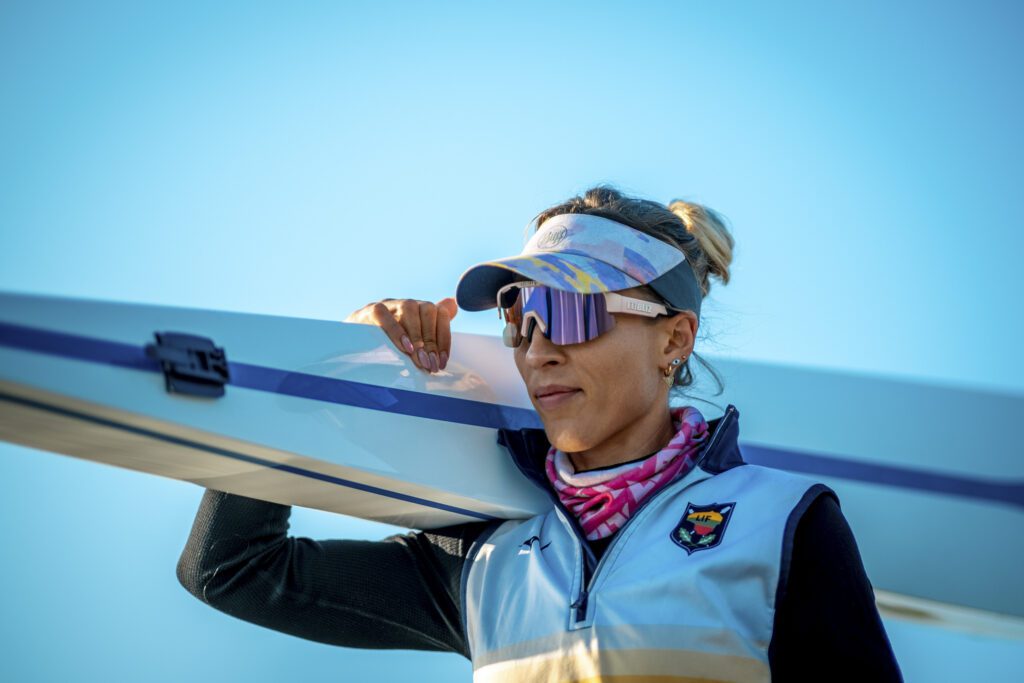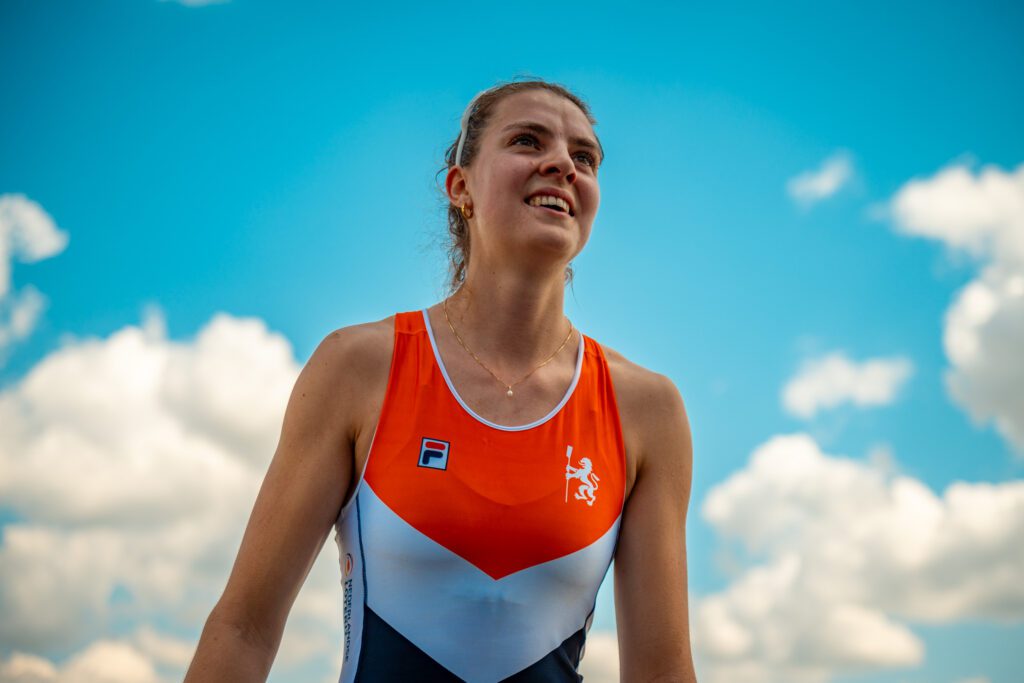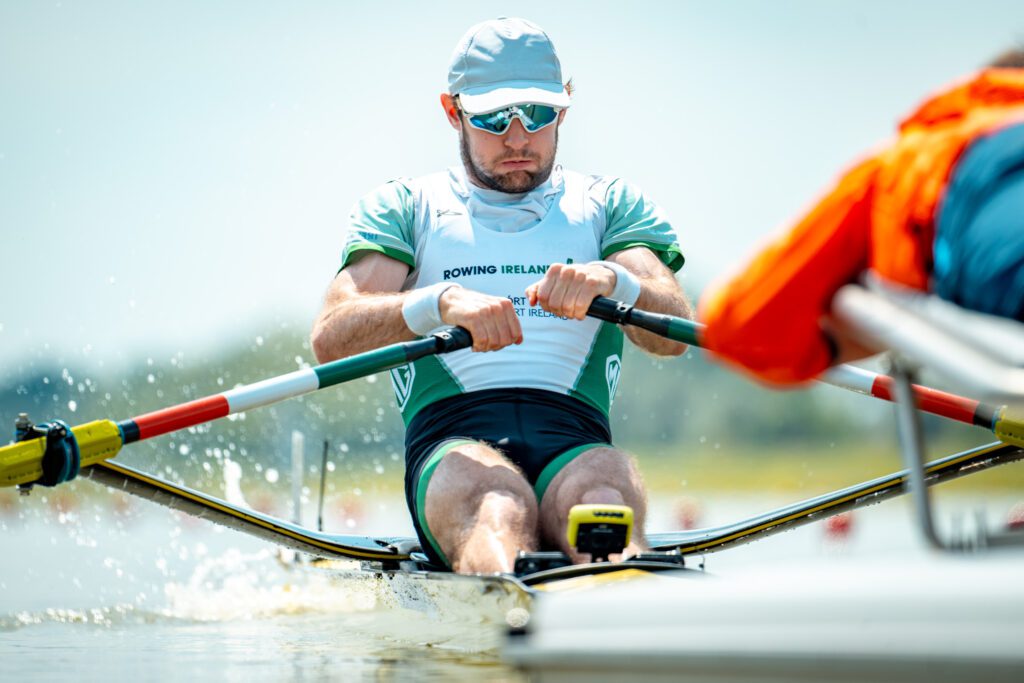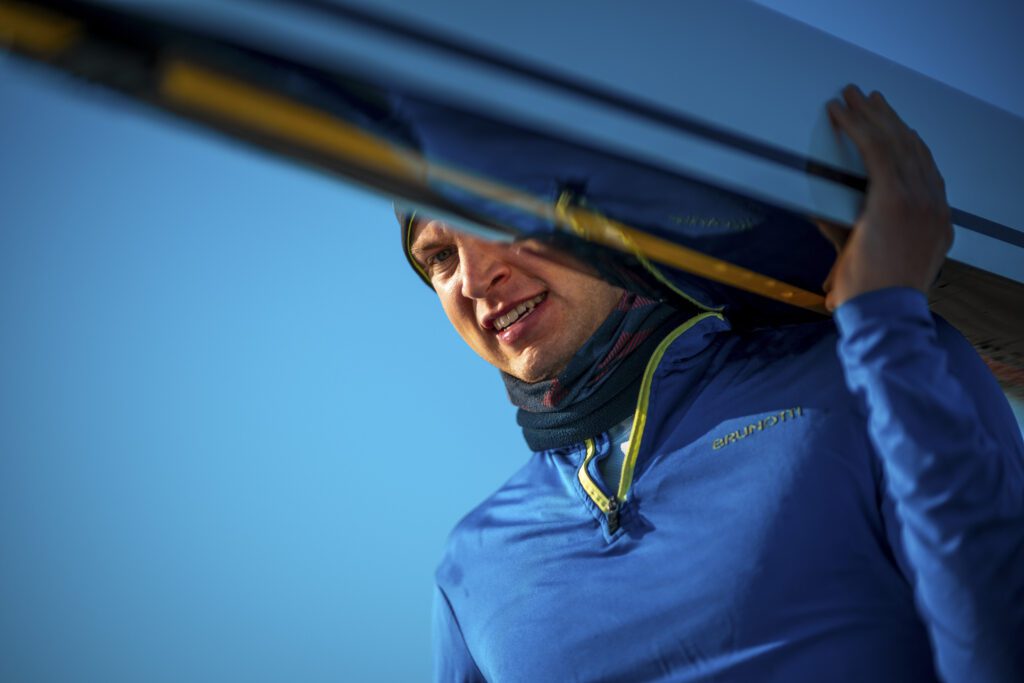An hour after the women’s race the Putney pubs emptied again as the men’s crews sat swaying on a high and rolling tide at the stakeboats. The last chance for Oxford to properly turn the tide, the biggest race of all, and one expected to be close. It wasn’t, for a whole pile of reasons which started with unpublicised sickness in the Oxford camp this week, continued with their atrocious start, and ended as Cambridge closed out an epic win despite their stroke man rowing himself into the ground mid-race.
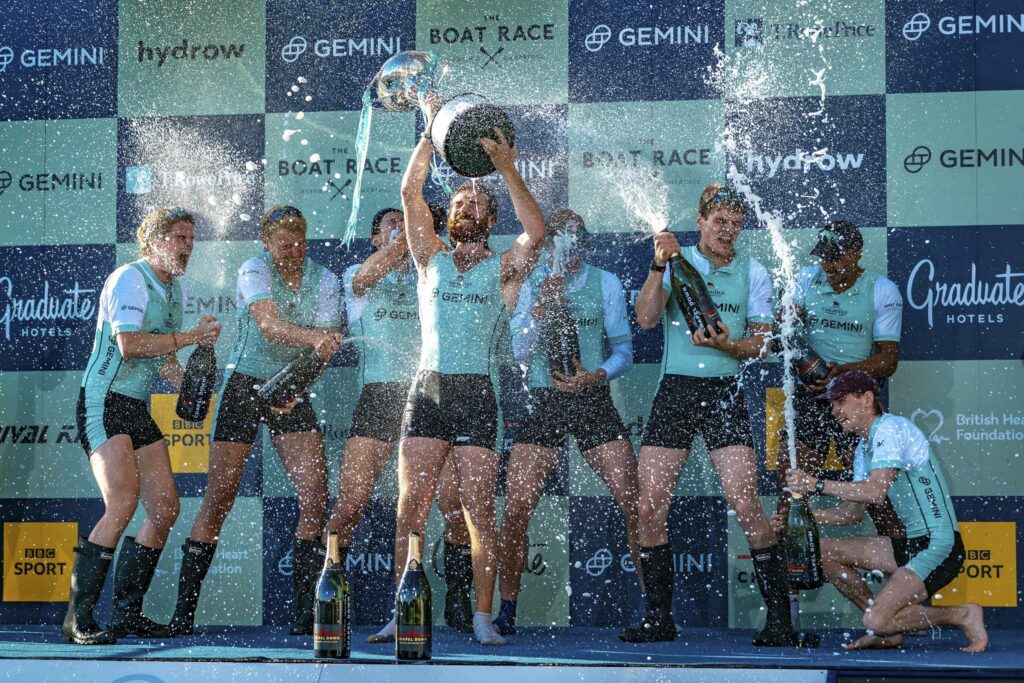
On one of the calmer starts of recent years, thanks to the good weather Umpire Matthew Pinsent picked up his red flag and stood up. But as he shouted “Go” and swished the flag Oxford had one of their rockiest ever starts, and within a few strokes the Cambridge bow was pulling ahead on the Middlesex station, which they had been given when Oxford won the toss. The Dark Blues held their rivals’ lead to a couple of seats, and kept the rate high to counter the Cambridge stride, but as the eights ventured out beyond the Black Buoy Light Blue cox Ed Bracey was already passing Oxford five-man Elias Kun and still moving.
By this stage Bracey had been warned for his steering several times, but Oxford steersman Will Denegri had no intention of being pushed around and as they rounded the Fulham Football Ground Pinsent was kept busy, the blades overlapping and Oxford’s two-seat Harry Glenister lost most of a stroke recovering from a brief clash during which both boats were being warned. Glenister turned to glare at Bracey as the Cambridge cox zoomed by, and Oxford pushed again to stop Cambridge shutting the door and taking their water. For a while they held the margin at seven to eight seats, but didn’t lose contact.
A surging and confident Cambridge scented blood, and despite being warned virtually every time they steered, they dug in again and slowly started to turn the screw, to wipe out Oxford’s long Surrey bend advantage. With Pinsent’s flag hanging out towards the Light Blues like washing on the line, but Oxford determined not to let them go, it was a battle for several minutes but the damage was complete by St Paul’s, where Cambridge finally grabbed the clear-water lead and quickly extended to two, then three lengths.
From there it should have been easy, but suddenly Cambridge stroke Matt Edge was starting to suffer. By the time the Light Blues were passing the Crossing he was only semi-alert, and his seven-man Luca Ferraro had to take over setting the rhythm. This is normally a Boat Race-losing problem, but with Oxford disconsolately trailing in their wake, and a crew which, it turned out, was ready for this kind of hiccup, Cambridge weren’t about to let it spoil their fun.
“We had this backup plan that if something happened to Matt, Luca was going to start stroking the boat,” said Bracey. “It had happened in a fixture where Matt caught a handle in the ribs and couldn’t breathe for a couple minutes, so we had a bit of a plan in place there. Honestly I think Matt went so deep in the first half of that race that you could see why that happened. He was sending it early on!”
The last bend of the sinuous Tideway course unfolded with the margin unchanged and both eights hugging the bank as the last of the faltering tide ran out in the face of the huge amount of upstream water coming down to London. The final margin of three and a half lengths to the Light Blues was remarkable with such a handicap. A white-faced Edge was hauled straight out of the boat by the medics, one of whom was Dr Alex Woods, himself a former Oxford oarsman who collapsed after the 2012 race and who now provides medical cover for the event. Edge missed the main prizegiving, allowed up on stage for only a few trophy photos with Woods standing guard over him.
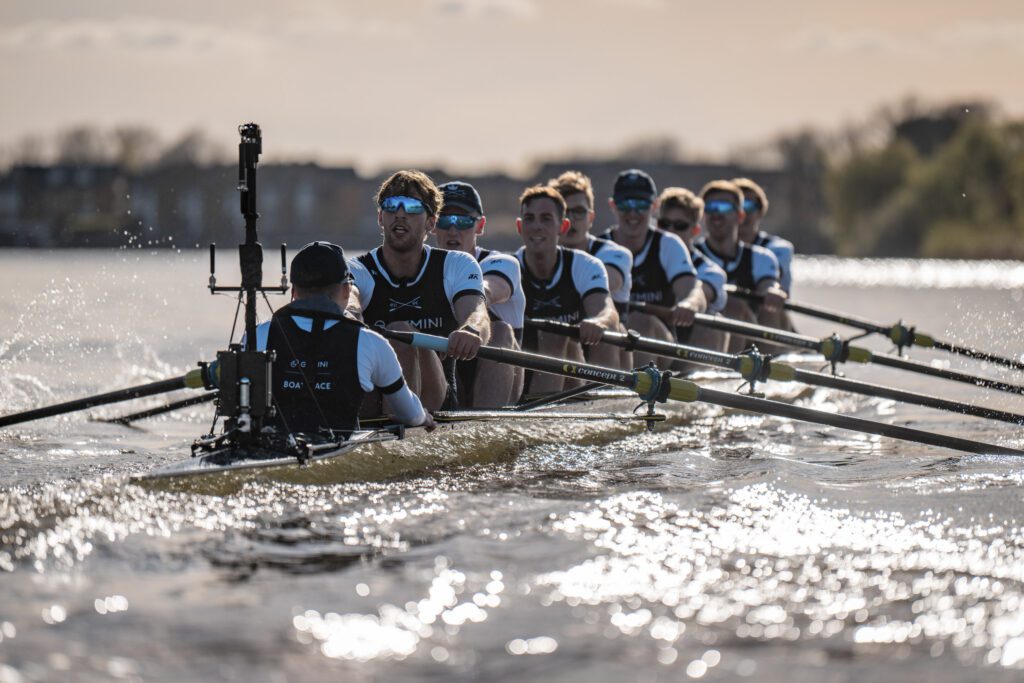
“I knew we were capable of doing it, but something like that!? No. But I knew they had real speed and endurance,” said Cambridge coach Rob Baker. “We hadn’t done it all together, we’d put bits together, but we put it together today. That wasn’t quite the plan, what happened at the end, but the guys dealt with it well. They’d driven up such a comfortable margin that we could get it home.”
“A little touch and go, to be fair, but we had full faith and I was happy to keep it going for the boys,” said Ferraro afterwards. “Matt is an absolute hero. To put yourself that much in the hole, to get us in front, you know, I love him so much, he really did the business today. He is the best stroke man I’ve ever rowed with.”
“It happens a lot in the Boat Race, that someone goes over their red line,” said victorious Cambridge President Seb Benzecry. “At that point, the other guys have to take collective responsibility to make sure the rhythm holds. It’s kind of the nightmare scenario, and we talked a lot about the 2002 race, where someone from Cambridge collapsed, but I think we handled it as best we could, we didn’t let it panic us.”
Meanwhile it was the first Boat Race day in memory that the winning coxes weren’t ceremoniously thrown in (it used to be an official point in the BBC TV coverage schedule until the crews were warned this week not to do it due to local sewage issues in the river). Bracey claimed he wouldn’t have minded, but it was a sensible decision to avoid the Thames. “We’ve been healthy, lucky,” he said. “We’re very aware of the situation and don’t want to take any risks.”
It was Oxford seven-man Lenny Jenkins who told the BBC during live coverage that several of the Oxford crew had been throwing up during the week and he had done so himself that very morning (without his coach knowing), but had not told anyone in case he was substituted. “I really wasn’t sure there was a chance for me to be in the boat, but I ultimately kept that quiet and that’s on my shoulders,” he said.
“They did to us what we wanted to do to them”
Lenny Jenkins
“I’m not sure if it was the right choice because I really didn’t have much to give in [the race], but it would have been taking one of the top guys out of Isis and ruining their chances. It’s really disappointing, but Cambridge really showed their class, they’re a top group of athletes,” said Jenkins. “They did to us what we wanted to do to them. It’s a shame there is so much poo in the water, but that’s not to take away from Cambridge. They were a talented crew and I’m not sure we would have had a chance to get them even if we had all been on form.”
“We obviously had a little bit of a messy start, not the start we wanted,” said Denegri. “We’d had a great warm up; none of our starts had gone wrong in the warm up. I think, maybe, that wasn’t something we were expecting. Felt like we didn’t grow into the rhythm that we were hoping to get into. This week we’ve had three people who have had to miss sessions because they’ve had stomach bugs. Whether that’s related to E. coli in the river? I don’t know. It’s certainly not helped our campaign.”
He also explained the choice of stations when they won the toss, due to groundwater coming downstream working against the incoming tide on which the race is rowed. “With the obviously high rainfall, the stream coming in isn’t very fast. We thought the long bend might benefit us – that was a collective decision taken by the coaching team.” The upper Thames where Oxford normally train in Wallingford has been unrowable for most of the winter and as a result the Oxford crews have had to train further away. “We’ve done a lot of our training, especially through February, at Caversham lake in Reading, which is an hour and ten minutes drive away from Oxford, so, spending 2.5 hours on the bus everyday has definitely interrupted our training.”
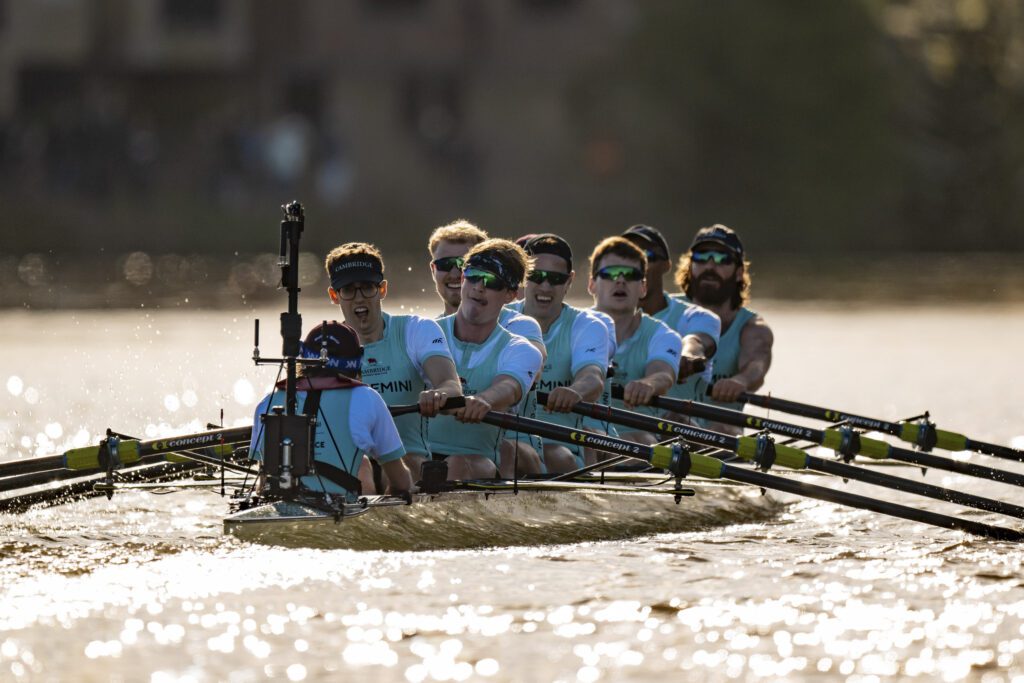
Oxford coach Sean Bowden, who has been involved in the race for more than 30 years, was brutally honest about the race. “It’s a rough year to gauge, with a whole bunch of factors, but I think it’s pretty fair that we’ve horribly underperformed on the day and Cambridge has done very well,” he said. “Mistakes on the start, where we were just rowing in this giant swell and we didn’t settle, we just sort of panicked a bit and got short, and did all the things we’re working not to. Cambridge handled the situation really well, did the job, and we just looked way off what we expected.” And the illnesses? “Well, it’s not helped, has it.” Bowden admitted he had been considering making substitutions during the final week, though had decided against it.
With Oxford bowman Jelmer Bennema telling a Dutch reporter that he had chucked up again straight after the race and did not feel well enough to go to the crews’ dinner, and suggesting several other crewmates also might not, it was looking like another miserable night for the Dark Blues. As the finish area emptied only Cambridge supporters were left swilling the last drops of Chapel Down fizz and discussing how to get back to Putney.
The tide will eventually turn for Oxford: in the Boat Race it always does. But not this year.
